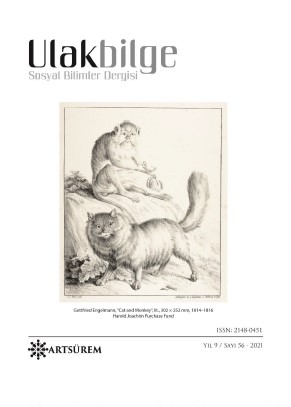CUMHURİYETİN İLK DÖNEMİNDE FATSA VE KÖYLERİNDE İMAM GÖREVLENDİRİLMESİNE DAİR KISA BİR DEĞERLENDİRME (1920-1931)
A BRIEF EVALUATION ON THE ASSIGNMENT OF IMAM IN FATSA AND ITS VILLAGES IN THE FIRST PERIOD OF THE REPUBLIC (1920-1931)
Author(s): Burhan SAYILIRSubject(s): History of Law, Local History / Microhistory, Government/Political systems, Interwar Period (1920 - 1939)
Published by: Sanat ve Dil Araştırmaları Enstitüsü
Keywords: Fatsa; imam; village law; Ordu; board of elders;
Summary/Abstract: Two factors have been very effective in villages that have lived an introverted life for centuries. The first of these was the village agha, the second was the village imam. The effect of these two factors is the result of an administration that lasted for centuries. Throughout history, peasants have learned the requirements of their religion from imams. Religious ties brought the inhabitants of the village closer to each other. With the opening of the Turkish Grand National Assembly in Ankara on April 23, 1920, the struggle for independence was initiated throughout the country, and people from all professions took part in this struggle. Clergymen also took part in this struggle. The current practice was continued during the National Struggle for the assignment of the Imams. After the declaration of the republic, a regulation was made regarding the village imams in the village law enacted in 1924. The ninth section of the law was about village imams. The imams who have been appointed to Fatsa and its villages since 1920 have also been appointed from among those who have the qualifications required by the law enacted in 1924. The selection of imams for the mosques in the villages was made with the request of the people or the request of the imam candidate, the opinion and evaluation of the village elders, the recommendation of the mufti and the approval of the district governor.
Journal: Ulakbilge Sosyal Bilimler Dergisi
- Issue Year: 9/2021
- Issue No: 56
- Page Range: 145-157
- Page Count: 13
- Language: Turkish

